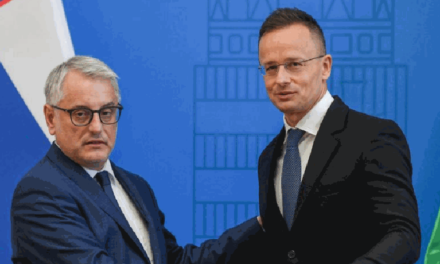However, the Lithuanians also protect minors from information that denigrates family values and promotes a different concept of marriage and family formation than that contained in their constitution.
László Dornfeld, an analyst at the Center for Fundamental Rights, said that since 2002, a law entitled "Protection of minors against the harmful effects of public information" has been in force in Lithuania. The law was amended in 2009 to define exactly what constitutes public information that adversely affects the development of minors.
Accordingly, minors must be protected from information that "disparages family values and promotes a concept of marriage and family formation that is different from that contained in the Constitution of the Republic of Lithuania and the Civil Code of the Republic of Lithuania".
The analyst drew attention to the fact that during the week there was an attempt in the Lithuanian parliament to remove this section of the law, but only 50 MPs supported the amendment, 19 MPs abstained, and 56 rejected it. The experiment failed because even one of the ruling parties, the "Homeland Alliance - Lithuanian Christian Democrats", did not stand unitedly behind the draft.
Moreover, this led to a government crisis, as the motion was submitted by the Minister of Justice, Ewelina Dobrowolska, who is a politician from the smaller government party, the Freedom Party, Dornfeld pointed out.
He pointed out: from a Hungarian point of view, the development is interesting because Viktor Orbán highlighted, in connection with the introduction of our child protection law, that the Lithuanian child protection law was used as a "starting point".
Hungarian aspect, that is, in connection with the creation of the Hungarian child protection framework
Prime Minister Viktor Orbán emphasized that the Lithuanian Child Protection Act was used as a kind of "starting point".
Magyar Nemzet recalled the debate in connection with the introduction of the legislation there in its Those arguing in favor of the legislation drew attention to the fact that the Lithuanian constitution is very clear about family and marriage.
"A man and a woman, nothing more, nothing less. Attempts to create the conditions for the dissemination of social information aimed at encouraging different family models provide a basis for the long-term change of this concept of the family and the distortion of the values fixed in our nation's constitution. Therefore, we must make a very clear and principled decision in favor of the constitution, the family and marriage as interpreted by the Lithuanian nation and as stipulated in our laws."
Of course, the European Parliament agreed with the original draft, so in 2009 a compromise, quoted above, was adopted. However, it is still the case that according to the current regulations
providing information to minors on grounds other than heterosexual orientation inevitably runs into this legal restriction.
Attila Ádám, a specialist in European law, pointed out in the article: in the last fourteen years, not a single body of the EU has taken action against this member state regulation.
Dornfeld said that in the current debate, the Minister of Justice, who was left in the lurch, argued for the necessity of the amendment because "Hungary currently has similar regulations, and the European Commission not only found a violation of the rules, but also initiated a lawsuit." And this is it
according to the analyst, this is essentially evidence of double standards.
At the same time, the analyst of the Fundamental Rights Center considers it welcome that the family-friendly President of the Republic of Lithuania, Gitanas Nausėda, said before the vote that it was completely unacceptable for him to give the green light to insulting the family. According to him, it is also worth recalling that in 2021, when the European Council asked him to sign an open letter condemning the Hungarian child protection law, he refused.
Since then, the EP and a number of member states, including Sweden, have entered into infringement proceedings against the domestic law.
According to Dornfeld, it is indicative at the European level that traditionalist forces are still in the majority in Lithuania, for whom denigration of family values is unacceptable. This creates the possibility of a family-friendly alliance between Hungary and Lithuania at the Central European level.
Hungary can therefore be an ally of Lithuania in fulfilling the promise of a family-friendly Europe. In this regard, the initiative of the Hungarian head of state, Katalin Novák, the network of family-friendly presidents, of which the Lithuanian president could be a valuable member, should be highlighted. "Within the framework of the Central Europe Project of the Center for Fundamental Rights, we are also trying to forge family-friendly forces at the regional level," emphasized the analyst.
Mandarin
Featured image: Twitter













